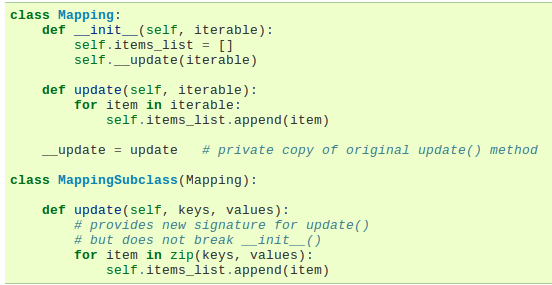- python比较字符串是否一样,Python如何确定两个字符串是否相同
鲁东学子
python比较字符串是否一样
I'vetriedtounderstandwhenPythonstringsareidentical(akasharingthesamememorylocation).Howeverduringmytests,thereseemstobenoobviousexplanationwhentwostringvariablesthatareequalsharethesamememory:importsy
- Java内存模型基础
2401_84002271
程序员java学习经验分享
1.2Java内存模型的抽象结构Java中所有的实例域、静态域和数组元素都存储在堆内存中,堆内存在线程之间共享(文章中用“共享变量”指代)。局部变量(LocalVariables)、方法定义参数(FormalMethodParameters)和异常处理器参数(ExceptionHandlerParameters)不会在线程之间共享,它们不会存在内存可见性问题,因此也不受内存模型的影响。Java线程
- MySQL内存结构
san.hang
数据库数据结构与算法
实际上MySQL内存的组成和Oracle类似,也可以分为SGA(系统全局区)和PGA(程序缓存区)。mysql>showvariableslike"%buffer%";一、SGA1.innodb_buffer_bool用来缓存Innodb表的数据、索引、插入缓冲、数据字典等信息。2.innodb_log_buffer事务在内存中的缓冲,即redlogbuffer的大小3.querycache高速查
- MySQL数据库全面学习之(上篇)
一心只为学
数据库mysql学习
Windows服务--启动MySQLnetstartmysql--创建Windows服务sccreatemysqlbinPath=mysqld_bin_path(注意:等号与值之间有空格)连接与断开服务器mysql-h地址-P端口-u用户名-p密码SHOWPROCESSLIST--显示哪些线程正在运行SHOWVARIABLES--显示系统变量信息数据库操作--查看当前数据库SELECTDATABA
- 在Python应用程序中使用.env文件管理环境变量
手机用户3381415902
学习python开发语言
原始地址:https://dev.to/jakewitcher/using-env-files-for-environment-variables-in-python-applications-55a1应用程序被部署后,在开发过程中必须考虑应用程序运行的环境以及应用程序执行任务所需的敏感或环境特定信息。环境变量是软件开发人员向应用程序提供此类信息的关键方式之一,但是如果设置这些变量在本地机器的环境
- C语言探索之旅 | 第一部分第五课:变量的世界(二),变量声明
哪有岁月静好
上一课我们学习的是C语言探索之旅|第一部分第四课:变量的世界(一),内存那档事。相信我,上一课对于内存的初探绝对很有用。这一课我们一起来学习变量的声明。简单地说,变量就是暂时储存在内存中的一小段信息。为什么叫做变量呢?变量的英语是variable,做形容词用的话是“可变的,易变的”之意,所以变量就是在程序运行期间其值可以改变的量。你将会看到,我们写的程序,常常是充满变量的。在C语言中(大多数语言也
- MySQL8.0默认TCP端口介绍
zxrhhm
tcp/ip网络协议mysql
1、本文内容选择题TCP/IPMySQL8.0的默认TCP端口showvariables查看总结2、选择题A、3306B、33060C、33062D、330633、TCP/IPTCP/IP(TransmissionControlProtocol/InternetProtocol,传输控制协议/网际协议)是指能够在多个不同网络间实现信息传输的协议簇。以下是对TCP/IP协议的详细解释:3.1.定义与
- python 卡方检验_Python-卡方检验
cunzai1985
pythonnumpy数据分析机器学习数据挖掘
python卡方检验Python-卡方检验(Python-Chi-SquareTest)Chi-Squaretestisastatisticalmethodtodetermineiftwocategoricalvariableshaveasignificantcorrelationbetweenthem.Boththosevariablesshouldbefromsamepopulationand
- Swift初学笔记之Swift基础语法
_迦与迦若
Swift编程语言swiftiosxcode
一、变量声明与oc相比更简洁,编译时的检错机制更完善1、let声明常量,var声明变量varmyVariable=42myVariable=50letmyConstant=422、如果初始化时直接赋值可以不声明类型,swift会自己识别(即类型推断)。反之需要用冒号:声明变量类型letmyString="HelloWorld"print(myString);//;加不加都可以,不会报错letmSt
- vba把excel导入mysql_VBA将Excel数据表格直接导入SQL Server数据库
weixin_39757040
[vb]代码库'把当前Excel工作簿的所有工作表的数据表格转换为Insert语句并导入SQLServer数据库中。OptionExplicitPublicSubCreateAllSheetsInsertScript()OnErrorGoToErrorHandler'recordsetandconnectionvariablesDimRowAsLongDimColAsInteger'Tostore
- 浅析MYSQL的事务和锁
胡萝卜、
mysql数据库java
1.MySQL的事务和锁1.1事务的介绍:概念:事务指逻辑上的一组操作,组成这个操作的单元,要么全部成功执行,要么全部执行失败个人理解:某个业务执行更新语句,整个业务下得sql语句(单指更新)全部成功执行,或者执行全部失败常见的mysql执行命令:starttransaction开启事务rollback回滚事务commit提交事务showvariableslike'%commit';查询是否为自动
- 【机器学习】广义线性模型(GLM)的基本概念以及广义线性模型在python中的实例(包含statsmodels和scikit-learn实现逻辑回归)
Lossya
机器学习pythonscikit-learn线性回归人工智能逻辑回归
引言GLM扩展了传统的线性回归模型,使其能够处理更复杂的数据类型和分布文章目录引言一、广义线性模型1.1定义1.2广义线性模型的组成1.2.1响应变量(ResponseVariable)1.2.2链接函数(LinkFunction)1.2.3线性预测器(LinearPredictor)1.3常见的广义线性模型1.3.1线性回归1.3.2逻辑回归1.3.3泊松回归1.4GLM的特性1.5广义线性模型
- AI基础 L13 Constraint Satisfaction Problems I约束满足问题
h08.14
AI基础人工智能
DefiningConstraintSatisfactionProblemsAconstraintsatisfactionproblem(CSP)consistsofthreecomponents,X,D,andC:•Xisasetofvariables,{X1,...,Xn}.•Disasetofdomains,{D1,...,Dn},oneforeachvariable•Cisasetofco
- 修改Mysql默认字符集
LeslieLiang
使用SHOWVARIABLESLIKE'character%'查看当前字符集Snipaste_2018-10-09_14-21-34.jpg1.进入Mysql的目录下,将my-default.txt复制为my.ini(影响不大)2.修改my.ini,在对应字段下添加以下内容[mysqld]character-set-server=utf8[client]default-character-set=
- django报错
是张鱼小丸子鸭
djangodjangopython后端
报错信息django.core.exceptions.ImproperlyConfigured:RequestedsettingINSTALLED_APPS,butsettingsarenotconfigured.YoumusteitherdefinetheenvironmentvariableDJANGO_SETTINGS_MODULEorcallsettings.configure()befo
- SpringMVC参数解析器HandlerMethodArgumentResolver
这是一条海鱼
SpringMVC
前言在享受SpringMVC带给你便捷的时候,你是否曾经这样疑问过:Controller的handler方法参数能够自动完成参数封装(有时即使没有@PathVariable、@RequestParam、@RequestBody等注解都可),甚至在方法参数任意位置写HttpServletRequest、HttpSession、Writer…等类型的参数,它自动就有值了便可直接使用。对此你是否想问一句
- pythongui 三维_PyQt5嵌入mayavi-python显示三维实体
weixin_39565910
pythongui三维
#First,andbeforeimportinganyEnthoughtpackages,settheETS_TOOLKIT#environmentvariabletoqt4,totellTraitsthatwewilluseQt.importos#os.environ['ETS_TOOLKIT']='qt4'#Bydefault,thePySidebindingwillbeused.Ifyou
- org.springframework.http.converter.HttpMessageNotReadableException错误原因及解决办法
海海不掉头发
ideaspringboot
报错原因:@RequestBody只支持POST请求,GET请求不能使用@RequestBody,修改GET请求为POST即可,如果需要使用GET请求,可以使用@RequestParam和@PathVariable报错异常为:org.springframework.http.converter.HttpMessageNotReadableException:Requiredrequestbodyi
- OWASP: OWASP Dependency-Check install and usage 安裝與使用說明
Chia-Te Kuan
OWASP經驗談分析工具c++SBOMSTQClinuxc语言
contentVariablesHowtoinstallOWASPDependency-CheckJAVAInstallationyarnInstallationImportYarnGPGkeysandenableYarnreponpmNET8.0InstallationDownloadDependency-checkandinstallHowtorundependency-checkGenera
- MySQL运维学习(1):4种日志
入门如入土
学习
1.错误日志mysql错误日志记录了mysql发生任何严重错误时的信息,若数据库无法正常使用时,可以先查看错误日志默认情况下错误日志是开启的,文件名为/var/log/mysqld.log,如果文件不在默认位置,可以通过下面的命令查看其位置:showvariableslike'%log_error%';由于错误日志内的文件行很多,可以用tail命令查看其尾部信息tail-n10/var/log/m
- 学习VB语言的步骤和资源
Crystal Cui
数据库VB
1.基础知识1.1了解VB的基本语法变量声明**:使用`Dim`关键字。DimmyVariableAsInteger-**条件语句**:使用`If...Then...Else`。 IfmyVariable>10Then MsgBox"Greaterthan10" Else MsgBox"10orless" EndIf-**循环**:使用`For...Next`和`While...Wend`
- Mac 电脑中怎么查看和修改环境变量,Mac中设置python的环境变量(小白必看)
小聒吃不胖
macos
前言:什么是环境变量环境变量(environmentvariables)一般是指在操作系统中用来指定操作系统运行环境的一些参数,如:临时文件夹位置和系统文件夹位置等。简单通俗的来说,就是设置一条路,在运行程序的时候,可以到环境变量中去找这条路,沿着这条路去走,程序就会更好地运行。正文:在mac中怎么设置环境变量呢一、mac中怎么查看环境变量1、打开终端路径:可以直接使用“启动台”打开终端。点击屏
- Go语言变量的声明
u011290064
golang开发语言后端
Go语言是静态类型语言,因此变量(variable)是有明确类型的,编译器也会检查变量类型的正确性。在数学概念中,变量表示没有固定值且可改变的数。但从计算机系统实现角度来看,变量是一段或多段用来存储数据的内存。声明变量的一般形式是使用var关键字:varnametype其中,var是声明变量的关键字,name是变量名,type是变量的类型。需要注意的是,Go语言和许多编程语言不同,它在声明变量时将
- 【Python】Python中变量或者函数加下划线‘_‘的含义
读思辨
Pythonpython开发语言
在Python中,变量或函数前面加一个下划线(_)通常用来指示特定的编程约定或用法,这些约定主要关乎变量和函数的可访问性以及预期的使用范围。以下是一些常见的用法:单下划线前缀(_variable):私有性:单个下划线前缀的变量或函数通常用于表示“私有”的,意味着这些变量或函数不应该被外部直接访问。在Python中,这种私有性是基于约定的(非强制性的),外部仍可以访问这些变量和函数。内部使用:这种约
- ThreadLocal 实战用法
crxk
Javajava多线程
ThreadLocal实战用法ThreadLocal是什么首先来看一下官方解释:Createsathreadlocalvariable.TheinitialvalueofthevariableisdeterminedbyinvokingthegetmethodontheSupplier.创建一个线程本地变量,变量的初始值是有调用get()方法的提供方所决定的。它的作用是在一个线程内部,不同的方法直
- 数据库性能大揭秘:玩转MySQL监控指标状态变量
云掣YUNCHE
数据库mysql
作者/文若编辑/姜至前言在本文中,我们将深入探讨MySQL数据库的性能监控世界。通过了解并应用一系列常用的监控指标,我们能够更精准地把握数据库的运行状况。这些指标,通常以状态变量(statusvariables)的形式呈现,是洞察数据库性能的关键。接下来,我们将逐一解析与连接相关的监控变量,包括当前连接数、活跃连接数、缓存线程数以及已创建的线程数。这些指标不仅帮助我们评估连接使用效率,还能预警潜在
- php操作mysql防止sql注入(合集)
get200
mysqlmysql注入
本文将从sql注入风险说起,并且比较addslashes、mysql_escape_string、mysql_real_escape_string、mysqli和pdo的预处理的区别。当一个变量从表单传入到php,需要查询mysql的话,需要进行处理。举例:$unsafe_variable=$_POST[‘user_input’];mysqli_query(“INSERTINTOtable(col
- C++现代教程六
码力码力我爱你
C++教程c++开发语言极限编程教程
#VariabletemplatestemplateconstexprTpi=T(3.1415926535897932385);#decltype(U)()std::declval()std::decay_t#classdecoration#includenamespacejc{templatestructget_class;templatestructget_class{usingtype=Cl
- Python之tkinter模块
唱戏先生
python基础
较全的tkinter翻译:https://segmentfault.com/a/1190000014280410全系列:[译][Tkinter教程01]入门:Label控件[译][Tkinter教程02]Message控件[译][Tkinter教程03]Button控件[译][Tkinter教程04]Variable类[译][Tinkter教程05]Radiobutton控件[译][Tkinter
- Spring MVC
200不是二百
Springspringmvcjava
目录1、MVC架构:2、请求&响应【重点】3、参数绑定【重点】4、路径@PathVariable5、页面跳转[熟悉]6、会话[重点]7、拦截器【开发必用】8、json处理【重点】9、文件上传10、异常处理引言:SpringWebMVC框架提供模型-视图-控制器架构和随时可用的组件,用于开发灵活且松散耦合的Web应用程序。MVC模式有助于分离应用程序的不同方面,如输入逻辑,业务逻辑和UI逻辑,同时在
- java工厂模式
3213213333332132
java抽象工厂
工厂模式有
1、工厂方法
2、抽象工厂方法。
下面我的实现是抽象工厂方法,
给所有具体的产品类定一个通用的接口。
package 工厂模式;
/**
* 航天飞行接口
*
* @Description
* @author FuJianyong
* 2015-7-14下午02:42:05
*/
public interface SpaceF
- nginx频率限制+python测试
ronin47
nginx 频率 python
部分内容参考:http://www.abc3210.com/2013/web_04/82.shtml
首先说一下遇到这个问题是因为网站被攻击,阿里云报警,想到要限制一下访问频率,而不是限制ip(限制ip的方案稍后给出)。nginx连接资源被吃空返回状态码是502,添加本方案限制后返回599,与正常状态码区别开。步骤如下:
- java线程和线程池的使用
dyy_gusi
ThreadPoolthreadRunnabletimer
java线程和线程池
一、创建多线程的方式
java多线程很常见,如何使用多线程,如何创建线程,java中有两种方式,第一种是让自己的类实现Runnable接口,第二种是让自己的类继承Thread类。其实Thread类自己也是实现了Runnable接口。具体使用实例如下:
1、通过实现Runnable接口方式 1 2
- Linux
171815164
linux
ubuntu kernel
http://kernel.ubuntu.com/~kernel-ppa/mainline/v4.1.2-unstable/
安卓sdk代理
mirrors.neusoft.edu.cn 80
输入法和jdk
sudo apt-get install fcitx
su
- Tomcat JDBC Connection Pool
g21121
Connection
Tomcat7 抛弃了以往的DBCP 采用了新的Tomcat Jdbc Pool 作为数据库连接组件,事实上DBCP已经被Hibernate 所抛弃,因为他存在很多问题,诸如:更新缓慢,bug较多,编译问题,代码复杂等等。
Tomcat Jdbc P
- 敲代码的一点想法
永夜-极光
java随笔感想
入门学习java编程已经半年了,一路敲代码下来,现在也才1w+行代码量,也就菜鸟水准吧,但是在整个学习过程中,我一直在想,为什么很多培训老师,网上的文章都是要我们背一些代码?比如学习Arraylist的时候,教师就让我们先参考源代码写一遍,然
- jvm指令集
程序员是怎么炼成的
jvm 指令集
转自:http://blog.csdn.net/hudashi/article/details/7062675#comments
将值推送至栈顶时 const ldc push load指令
const系列
该系列命令主要负责把简单的数值类型送到栈顶。(从常量池或者局部变量push到栈顶时均使用)
0x02 &nbs
- Oracle字符集的查看查询和Oracle字符集的设置修改
aijuans
oracle
本文主要讨论以下几个部分:如何查看查询oracle字符集、 修改设置字符集以及常见的oracle utf8字符集和oracle exp 字符集问题。
一、什么是Oracle字符集
Oracle字符集是一个字节数据的解释的符号集合,有大小之分,有相互的包容关系。ORACLE 支持国家语言的体系结构允许你使用本地化语言来存储,处理,检索数据。它使数据库工具,错误消息,排序次序,日期,时间,货
- png在Ie6下透明度处理方法
antonyup_2006
css浏览器FirebugIE
由于之前到深圳现场支撑上线,当时为了解决个控件下载,我机器上的IE8老报个错,不得以把ie8卸载掉,换个Ie6,问题解决了,今天出差回来,用ie6登入另一个正在开发的系统,遇到了Png图片的问题,当然升级到ie8(ie8自带的开发人员工具调试前端页面JS之类的还是比较方便的,和FireBug一样,呵呵),这个问题就解决了,但稍微做了下这个问题的处理。
我们知道PNG是图像文件存储格式,查询资
- 表查询常用命令高级查询方法(二)
百合不是茶
oracle分页查询分组查询联合查询
----------------------------------------------------分组查询 group by having --平均工资和最高工资 select avg(sal)平均工资,max(sal) from emp ; --每个部门的平均工资和最高工资
- uploadify3.1版本参数使用详解
bijian1013
JavaScriptuploadify3.1
使用:
绑定的界面元素<input id='gallery'type='file'/>$("#gallery").uploadify({设置参数,参数如下});
设置的属性:
id: jQuery(this).attr('id'),//绑定的input的ID
langFile: 'http://ww
- 精通Oracle10编程SQL(17)使用ORACLE系统包
bijian1013
oracle数据库plsql
/*
*使用ORACLE系统包
*/
--1.DBMS_OUTPUT
--ENABLE:用于激活过程PUT,PUT_LINE,NEW_LINE,GET_LINE和GET_LINES的调用
--语法:DBMS_OUTPUT.enable(buffer_size in integer default 20000);
--DISABLE:用于禁止对过程PUT,PUT_LINE,NEW
- 【JVM一】JVM垃圾回收日志
bit1129
垃圾回收
将JVM垃圾回收的日志记录下来,对于分析垃圾回收的运行状态,进而调整内存分配(年轻代,老年代,永久代的内存分配)等是很有意义的。JVM与垃圾回收日志相关的参数包括:
-XX:+PrintGC
-XX:+PrintGCDetails
-XX:+PrintGCTimeStamps
-XX:+PrintGCDateStamps
-Xloggc
-XX:+PrintGC
通
- Toast使用
白糖_
toast
Android中的Toast是一种简易的消息提示框,toast提示框不能被用户点击,toast会根据用户设置的显示时间后自动消失。
创建Toast
两个方法创建Toast
makeText(Context context, int resId, int duration)
参数:context是toast显示在
- angular.identity
boyitech
AngularJSAngularJS API
angular.identiy 描述: 返回它第一参数的函数. 此函数多用于函数是编程. 使用方法: angular.identity(value); 参数详解: Param Type Details value
*
to be returned. 返回值: 传入的value 实例代码:
<!DOCTYPE HTML>
- java-两整数相除,求循环节
bylijinnan
java
import java.util.ArrayList;
import java.util.List;
public class CircleDigitsInDivision {
/**
* 题目:求循环节,若整除则返回NULL,否则返回char*指向循环节。先写思路。函数原型:char*get_circle_digits(unsigned k,unsigned j)
- Java 日期 周 年
Chen.H
javaC++cC#
/**
* java日期操作(月末、周末等的日期操作)
*
* @author
*
*/
public class DateUtil {
/** */
/**
* 取得某天相加(减)後的那一天
*
* @param date
* @param num
*
- [高考与专业]欢迎广大高中毕业生加入自动控制与计算机应用专业
comsci
计算机
不知道现在的高校还设置这个宽口径专业没有,自动控制与计算机应用专业,我就是这个专业毕业的,这个专业的课程非常多,既要学习自动控制方面的课程,也要学习计算机专业的课程,对数学也要求比较高.....如果有这个专业,欢迎大家报考...毕业出来之后,就业的途径非常广.....
以后
- 分层查询(Hierarchical Queries)
daizj
oracle递归查询层次查询
Hierarchical Queries
If a table contains hierarchical data, then you can select rows in a hierarchical order using the hierarchical query clause:
hierarchical_query_clause::=
start with condi
- 数据迁移
daysinsun
数据迁移
最近公司在重构一个医疗系统,原来的系统是两个.Net系统,现需要重构到java中。数据库分别为SQL Server和Mysql,现需要将数据库统一为Hana数据库,发现了几个问题,但最后通过努力都解决了。
1、原本通过Hana的数据迁移工具把数据是可以迁移过去的,在MySQl里面的字段为TEXT类型的到Hana里面就存储不了了,最后不得不更改为clob。
2、在数据插入的时候有些字段特别长
- C语言学习二进制的表示示例
dcj3sjt126com
cbasic
进制的表示示例
# include <stdio.h>
int main(void)
{
int i = 0x32C;
printf("i = %d\n", i);
/*
printf的用法
%d表示以十进制输出
%x或%X表示以十六进制的输出
%o表示以八进制输出
*/
return 0;
}
- NsTimer 和 UITableViewCell 之间的控制
dcj3sjt126com
ios
情况是这样的:
一个UITableView, 每个Cell的内容是我自定义的 viewA viewA上面有很多的动画, 我需要添加NSTimer来做动画, 由于TableView的复用机制, 我添加的动画会不断开启, 没有停止, 动画会执行越来越多.
解决办法:
在配置cell的时候开始动画, 然后在cell结束显示的时候停止动画
查找cell结束显示的代理
- MySql中case when then 的使用
fanxiaolong
casewhenthenend
select "主键", "项目编号", "项目名称","项目创建时间", "项目状态","部门名称","创建人"
union
(select
pp.id as "主键",
pp.project_number as &
- Ehcache(01)——简介、基本操作
234390216
cacheehcache简介CacheManagercrud
Ehcache简介
目录
1 CacheManager
1.1 构造方法构建
1.2 静态方法构建
2 Cache
2.1&
- 最容易懂的javascript闭包学习入门
jackyrong
JavaScript
http://www.ruanyifeng.com/blog/2009/08/learning_javascript_closures.html
闭包(closure)是Javascript语言的一个难点,也是它的特色,很多高级应用都要依靠闭包实现。
下面就是我的学习笔记,对于Javascript初学者应该是很有用的。
一、变量的作用域
要理解闭包,首先必须理解Javascript特殊
- 提升网站转化率的四步优化方案
php教程分享
数据结构PHP数据挖掘Google活动
网站开发完成后,我们在进行网站优化最关键的问题就是如何提高整体的转化率,这也是营销策略里最最重要的方面之一,并且也是网站综合运营实例的结果。文中分享了四大优化策略:调查、研究、优化、评估,这四大策略可以很好地帮助用户设计出高效的优化方案。
PHP开发的网站优化一个网站最关键和棘手的是,如何提高整体的转化率,这是任何营销策略里最重要的方面之一,而提升网站转化率是网站综合运营实力的结果。今天,我就分
- web开发里什么是HTML5的WebSocket?
naruto1990
Webhtml5浏览器socket
当前火起来的HTML5语言里面,很多学者们都还没有完全了解这语言的效果情况,我最喜欢的Web开发技术就是正迅速变得流行的 WebSocket API。WebSocket 提供了一个受欢迎的技术,以替代我们过去几年一直在用的Ajax技术。这个新的API提供了一个方法,从客户端使用简单的语法有效地推动消息到服务器。让我们看一看6个HTML5教程介绍里 的 WebSocket API:它可用于客户端、服
- Socket初步编程——简单实现群聊
Everyday都不同
socket网络编程初步认识
初次接触到socket网络编程,也参考了网络上众前辈的文章。尝试自己也写了一下,记录下过程吧:
服务端:(接收客户端消息并把它们打印出来)
public class SocketServer {
private List<Socket> socketList = new ArrayList<Socket>();
public s
- 面试:Hashtable与HashMap的区别(结合线程)
toknowme
昨天去了某钱公司面试,面试过程中被问道
Hashtable与HashMap的区别?当时就是回答了一点,Hashtable是线程安全的,HashMap是线程不安全的,说白了,就是Hashtable是的同步的,HashMap不是同步的,需要额外的处理一下。
今天就动手写了一个例子,直接看代码吧
package com.learn.lesson001;
import java
- MVC设计模式的总结
xp9802
设计模式mvc框架IOC
随着Web应用的商业逻辑包含逐渐复杂的公式分析计算、决策支持等,使客户机越
来越不堪重负,因此将系统的商业分离出来。单独形成一部分,这样三层结构产生了。
其中‘层’是逻辑上的划分。
三层体系结构是将整个系统划分为如图2.1所示的结构[3]
(1)表现层(Presentation layer):包含表示代码、用户交互GUI、数据验证。
该层用于向客户端用户提供GUI交互,它允许用户
